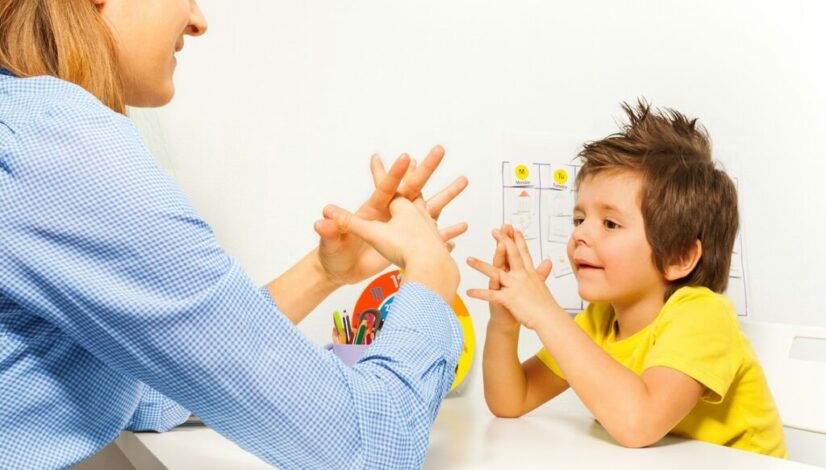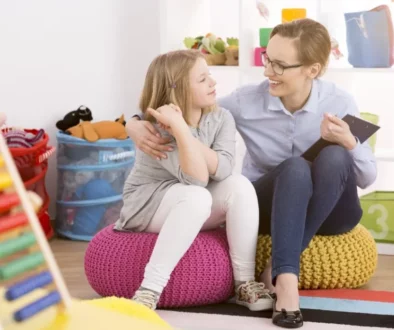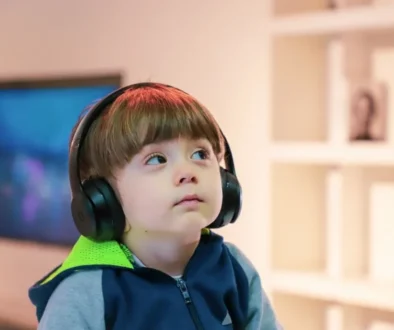Common Developmental Milestones and What to Expect at Each Age
Watching your child grow is one of the most rewarding experiences as a parent. Each age brings new abilities, new challenges, and new reasons to celebrate. Understanding common developmental milestones helps you know what to expect and when. It also equips you to spot any potential delays early, so you can seek the necessary support. Here’s a look at what to expect at each stage, from infancy through the early school years.
Infants (0-12 Months)
The first year of life is a period of rapid growth and development. During this time, babies begin to explore the world around them, laying the foundation for future learning.
- Physical Milestones: By 3 months, most infants can lift their heads while lying on their stomachs. By 6 months, they might roll over and begin to sit with support. At 9 months, many start to crawl, and by their first birthday, they might be pulling up to stand or even taking their first steps.
- Cognitive Milestones: Infants start to recognize familiar faces and respond to sounds. By 6 months, they begin to show curiosity about objects and try to reach for them. At 9 months, babies might start to understand simple commands like “no.”
- Social and Emotional Milestones: Newborns quickly bond with their caregivers, and by 3 months, they usually respond with smiles. Around 6 months, they may show preferences for familiar people and may begin to show stranger anxiety.
- Communication Milestones: Babies start cooing and making vowel sounds by 3 months. By 6 months, they might babble with consonants, and by 12 months, they could say simple words like “mama” or “dada.”
Toddlers (1-3 Years)
The toddler years are marked by increased independence and mobility. It’s a time of exploration, with rapid growth in physical, cognitive, and emotional domains.
- Physical Milestones: Most toddlers are walking by 18 months and may start running and climbing soon after. By age 2, many can kick a ball and begin to show hand dominance. By 3 years old, they might start pedaling a tricycle and mastering the use of utensils.
- Cognitive Milestones: At this age, toddlers are curious and eager to explore. They start to understand and follow simple instructions and may engage in pretend play. By age 3, they can work on simple puzzles and recognize common shapes and colors.
- Social and Emotional Milestones: Toddlers begin to show more complex emotions and may experience separation anxiety. They often play alongside other children, known as parallel play, and by age 3, they may begin to play more interactively with peers.
- Communication Milestones: Vocabulary grows rapidly during the toddler years. By 18 months, many children can say around 20 words, and by age 2, they may start forming simple sentences. By age 3, toddlers can usually carry on a basic conversation.
Preschoolers (3-5 Years)
The preschool years are a time of refining skills and gaining new ones. Children become more social, imaginative, and capable of more complex thought processes.
- Physical Milestones: Preschoolers become more coordinated and can manage tasks like dressing themselves, brushing their teeth, and using scissors. By age 5, many can hop on one foot, skip, and catch a ball with ease.
- Cognitive Milestones: This is a period of intense learning. Preschoolers start to understand the concept of time, recognize letters and numbers, and can follow more complex instructions. They also begin to understand cause and effect.
- Social and Emotional Milestones: Social skills flourish during the preschool years. Children begin to form friendships, engage in cooperative play, and understand sharing and taking turns. They also start to express empathy and understand others’ feelings.
- Communication Milestones: Preschoolers’ vocabulary continues to expand, and they can express themselves in full sentences. They begin to ask a lot of questions as they try to make sense of the world around them. By age 5, most children can tell simple stories and have a basic understanding of grammar.
Early School Age (5-7 Years)
As children enter school, they continue to grow in all areas. They start to apply their skills in more structured environments and begin to understand the broader world.
- Physical Milestones: Fine motor skills improve, allowing children to write more clearly, draw detailed pictures, and participate in sports. Gross motor skills also continue to develop, with activities like swimming and bike riding becoming common.
- Cognitive Milestones: Early school-age children develop a stronger sense of logic and can understand more complex concepts like math and science. They begin to read independently and can focus on tasks for longer periods.
- Social and Emotional Milestones: School introduces new social dynamics. Children start to build deeper friendships, understand rules, and develop a sense of right and wrong. They may also begin to understand and deal with peer pressure.
- Communication Milestones: By this age, children can express complex ideas, engage in detailed conversations, and understand jokes and riddles. Their vocabulary continues to grow, and they start to develop their reading and writing skills.
What to Do If You’re Concerned About Development
It’s natural to worry if your child isn’t hitting milestones exactly when expected, but remember, every child develops at their own pace. However, if you notice that your child is significantly behind in one or more areas, it might be time to consult with a pediatrician or developmental specialist. Early intervention can be key in helping children who are experiencing delays.
In my practice, I’ve seen how timely support can transform a child’s development. Whether it’s through speech therapy, occupational therapy, or other interventions, taking action early on can help your child reach their full potential.
Encouraging Your Child’s Development
Supporting your child’s development doesn’t have to be complicated. Simple, everyday activities can make a big difference. For example, talking and reading to your child helps boost their language skills. Playing with them encourages social and cognitive development, and providing a safe space to explore supports their physical growth.
Remember, your engagement in their daily activities is just as important as any formal milestone. Celebrating the small victories along the way can make the journey even more enjoyable for both you and your child.
Supporting Your Child’s Developmental Journey
Understanding and monitoring developmental milestones can help you support your child’s growth more effectively. While these milestones provide a general guide, it’s important to remember that each child’s journey is unique. Being aware of what to expect at each stage, staying engaged in your child’s development, and seeking support when needed will help ensure they thrive.
When You Need Help, We’re Here!
If you have any concerns about your child’s developmental milestones or just want more information on how to support their growth, don’t hesitate to reach out. Schedule a consultation with us today, and let’s work together to ensure your child reaches their full potential. Early support can make a world of difference, so contact us now to get started!
Quick Questions About Common Milestones
What are the key developmental milestones for children at different ages?
Developmental milestones vary by age, including physical, cognitive, social, and communication skills. For example, infants typically begin to crawl around 9 months, while toddlers start to form simple sentences by age 2. Understanding these milestones helps you track your child’s growth and identify any areas where they may need extra support.
How can I support my child if they are not meeting developmental milestones?
If you notice your child isn’t meeting milestones, consider consulting a pediatrician or developmental specialist. Early intervention, such as speech or occupational therapy, can be crucial in helping your child catch up. Simple daily activities like reading, talking, and playing can also support their development.
Why is it important to monitor developmental milestones?
Monitoring milestones helps you understand your child’s progress and spot potential delays early. Early detection allows for timely interventions, which can significantly improve outcomes in areas like speech, motor skills, and social interactions.
Sources and Citations
- Centers for Disease Control and Prevention (CDC) – Developmental Milestones
- American Academy of Pediatrics (AAP) – Ages and Stages
- Mayo Clinic – Child Development: Milestones Overview
- KidsHealth – Developmental Milestones
- Zero to Three – Understanding Developmental Milestones



